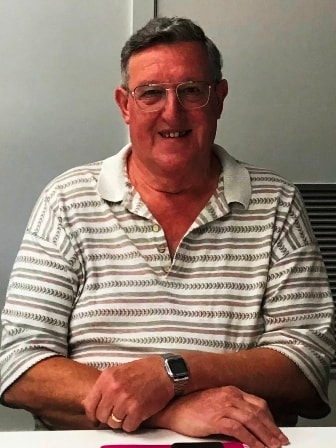Samaria Fire Brigade had a very busy period from 5pm on 15th December, until later on 16th December 2014.
Later in the evening of 15th December, Samaria tanker was nominated to remain on-scene overnight, at the fourth of the fires already attended that day. We were to work on containment and blacking out. (The terrain at this location was difficult and experienced crew and suitable vehicles were needed to complete the task). After refilling the tanker with water later that evening, we stopped at the control point to check on progress of the possibility of a replacement crew. At that time we were told that they had been unable to locate any replacement crew from Samaria. I then went back to the tanker and had a discussion with all of the crew, regarding availability to remain and/or the need to return home. At that point two crew members had commitments the following day. Myself and the other two crew, agreed to remain on the tanker overnight. I took the crew down to the property homestead to get the crew something to eat and await transport for the two crew requiring transfer back to Samaria. It was 2am on 16th December at this point. Following the release of the two crew members, the remaining three Samaria crew went back up to the fire ground to continue to patrol and black-out.
At 3am on 16th December we had located two small logs burning inside the fence and stopped to deal with them. I was at the rear of the tanker when one of the crew rolled past me on the ground at the side of the tanker. I went over to check on him. I asked what had happened and he said that as he stepped down from the tanker rear deck, he missed the hand rail and fell. The crew member was carefully loaded back onto the tanker. From the tanker location, we reversed back down the hill a short distance where we were able to reverse turn the tanker whilst remaining on reasonably smooth ground and avoided rocks etc. We radioed ahead to the control point advising them that we had a suspected broken leg. Upon arrival it was assessed that due to pain levels, it was possibly only a sprain, however we continued to treat it as a possible fracture, despite the fact that the crew member was still able to wiggle his toes and move his foot without increasing the pain. He was very carefully lifted from the tanker to the back seat of a car for transfer to Benalla Hospital.
Later in the morning, after refilling the tanker with water, the transport car returned just as we approached the control point. The time was around 4.30am on Tuesday 16th December. I went over to the driver and asked about the crew member’s condition. The driver did not wait for the full assessment, but according to Benalla Hospital emergency staff members, he would be kept for observation and released at 10am that morning. From this report I deduced that the staff had also assessed that the injury was possibly a sprain, rather than a fracture.
For most of the early morning the crews just monitored the fire ground situation until earthmoving equipment arrived at around 7.30am to make the area safe for crews to enter and extinguish the fire. Just as the area was made safe, a strike team arrived to relieve us. Following a briefing session with the strike team crews, Samaria tanker was released from the scene at 9.00am on Tuesday 16th December. At this point we still had no update on the condition of our crew member.
On arrival back at the station around 10.00am the tanker was refilled with water, cleaned, wet hoses removed and the drinks cooler restocked in anticipation of being deployed during the day. Prior to leaving, we checked again with the hospital, who advised they were still waiting on x-rays.
Both the driver and myself were exhausted after being awake continuously for around 28 hours and operational for almost 17hours of this time. We both headed home to bed. I arrived home at approx. 10.45am to be briefed by my wife following a phone call just received. The X-rays had confirmed that our crew member did have a fractured leg and he would be taken to Wangaratta for an operation to have the leg pinned. The crew member was eventually released from hospital some days later and returned home, but was unable to return to work.
This is when I started to ‘make waves’. The Kennett Government had passed legislation stating that loss of income compensation would not be paid to ‘workers’ over 65 years of age, because at that age they should be on either superannuation, or a pension. Our volunteer was over 70 and had regular seasonal work.
The CFA initially refused to pay ‘loss of income’ compensation. Following consultation with the volunteer representative body, Volunteer Fire Brigades Victoria, I compiled a report, and with a little assistance from a retired County Court Judge, a submission was made to the CFA pointing out that their policies were in breach of at least two Federal Government laws. Compensation was paid, and the CFA amended their policy. They confirmed this to all brigades in written form, in September 2016. Loss of income is now paid to all CFA volunteers, irrespective of their age.
Whilst I believe that the Victorian Act has still not been amended, the response from the CFA has set a precedent for all organisations in Victoria with a volunteer component.
Barry O’Connor.
22nd March 2020.


 RSS Feed
RSS Feed
